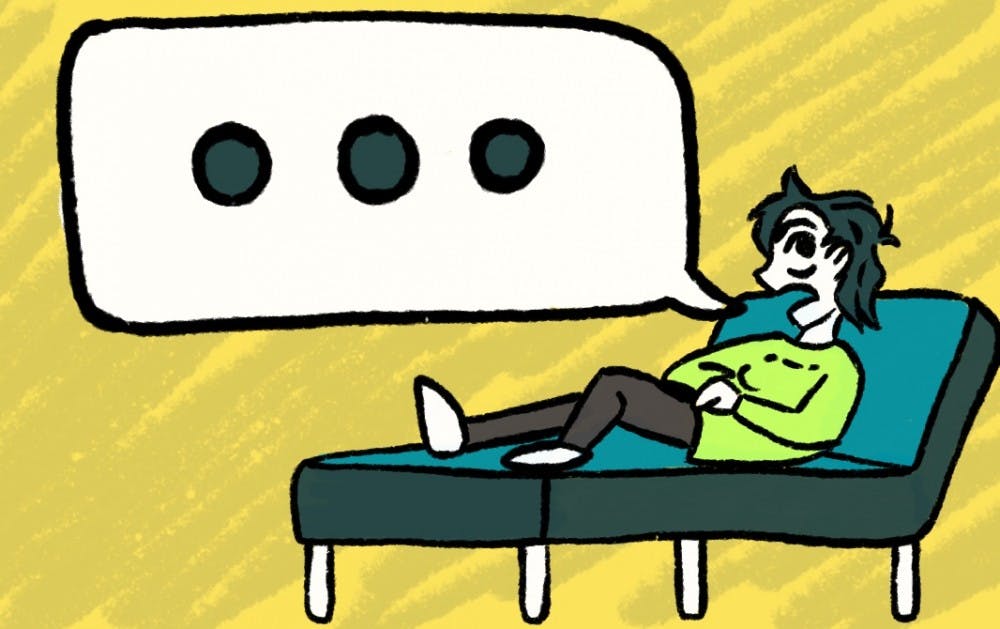With the academic year coming to an end, many students are left feeling incredibly overwhelmed by finals, mental health issues, relationship problems and life in general. Spring semester is a time where many students may feel that their mental health is suffering because of other responsibilities and obligations.
Procrastination earlier in the semester is a major contributor to these feelings. When students delay working on assignments and studying for exams, they may see these obligations piling up as the end of the year approaches. When combined with additional personal problems, handling all of these responsibilities at once may feel overwhelming and impossible.
"I think what happens in spring is that a lot of things start to pile on students in terms of stress," said Aaron Krasnow, Associate Vice President of ASU Health Services and Counseling Services. "Whether stress has overwhelmed them, or they are already struggling with mental health issues, the end of the year can culminate all of that pressure and cause them to feel as if they need to make a change to their academic path or take a medical leave. Feeling mildly depressed may cause them to procrastinate some of their work, and when March and April comes, everything is piling on."
This is not to say that all of these symptoms are the result of a workload in college. Like many in the general population, college students suffer from anxiety and depression as a psychiatric disorder, exhibiting symptoms including persistent fear in normal situations, lack of energy, and difficulty concentrating, that can make getting through college that much harder.
However, Spring semester blues can evoke a variety of negative emotions, such as loneliness, isolation and the feeling of inadequacy. Students may experience a variety of feelings that they do not know how to cope with, especially if they are early in their college career and not used to a high-stress and competitive college environment.
College is a time where excelling performance is demanded from those who want to make it in a cutthroat career field, which can lead many students to compare themselves to others and feel unsatisfied about their pace, grades or accomplishments.
With the end of the year approaching, these feelings can balloon into something much bigger and leave students questioning their own life choices regarding their major, career path, relationships and overall capability.
However, it is important that students realize that they are not alone. Many students often feel overwhelmed, stressed and depressed, which may lead to them seeking out counseling and other mental health resources.
"We tend to see between 6 to 7 percent of the student body each year, and that is exactly in line for averages for large universities," Krasnow said.
Students often feel ashamed or embarrassed to admit that they need help. There is a stigma associated with mental health resources that causes students to stray away from counseling services out of fear of feeling weird or further isolated by their peers.
"When students are concerned of (mental health) stigma, we talk to them directly to what they are embarrassed about," Krasnow said. "They imagine judgment from others, but don’t have a lot of evidence for this judgment. When people start to talk it out, they start to think of people who would be proud of them getting help rather than those who would judge them."
Despite this, students must begin to understand that not everything can be handled individually. We are all human, and asking for help every once in a while is normal and merited.
ASU students should not feel as if they need to distance themselves from getting help. There is no shame in admitting that you need somebody to talk to, or need to explore different options for solving a problem. ASU is home to an extremely diverse student body, so each student’s needs and wants are varied. There is no one-size-fits-all solution to each problem.
Luckily, ASU offers a variety of low-stress resources that can help students feel like themselves again and get back on a productive, manageable path. The University offers both in-person counseling services, as well as a new program called TAO Connect, where students can receive different forms mental health treatment online and for free.
"ASU counseling services offers consultations and assessments to any student about any mental health need," Krasnow said. "We offer individual and group counseling for those who seek that, and we encourage people to visit us for any reason."
ASU students should work to end the stigma of mental health issues by seeking help for themselves and helping their peers work through the various issues in their lives. Becoming more comfortable with the idea of counseling and receiving external help is key to minimizing mental health issues among college students.
Reach the columnist at amsnyde6@asu.edu or follow @AnnieSnyder718 on Twitter.
Editor’s note: The opinions presented in this column are the author’s and do not imply any endorsement from The State Press or its editors.
Want to join the conversation? Send an email to opiniondesk.statepress@gmail.com. Keep letters under 500 words and be sure to include your university affiliation. Anonymity will not be granted.
Like The State Press on Facebook and follow @statepress on Twitter.




